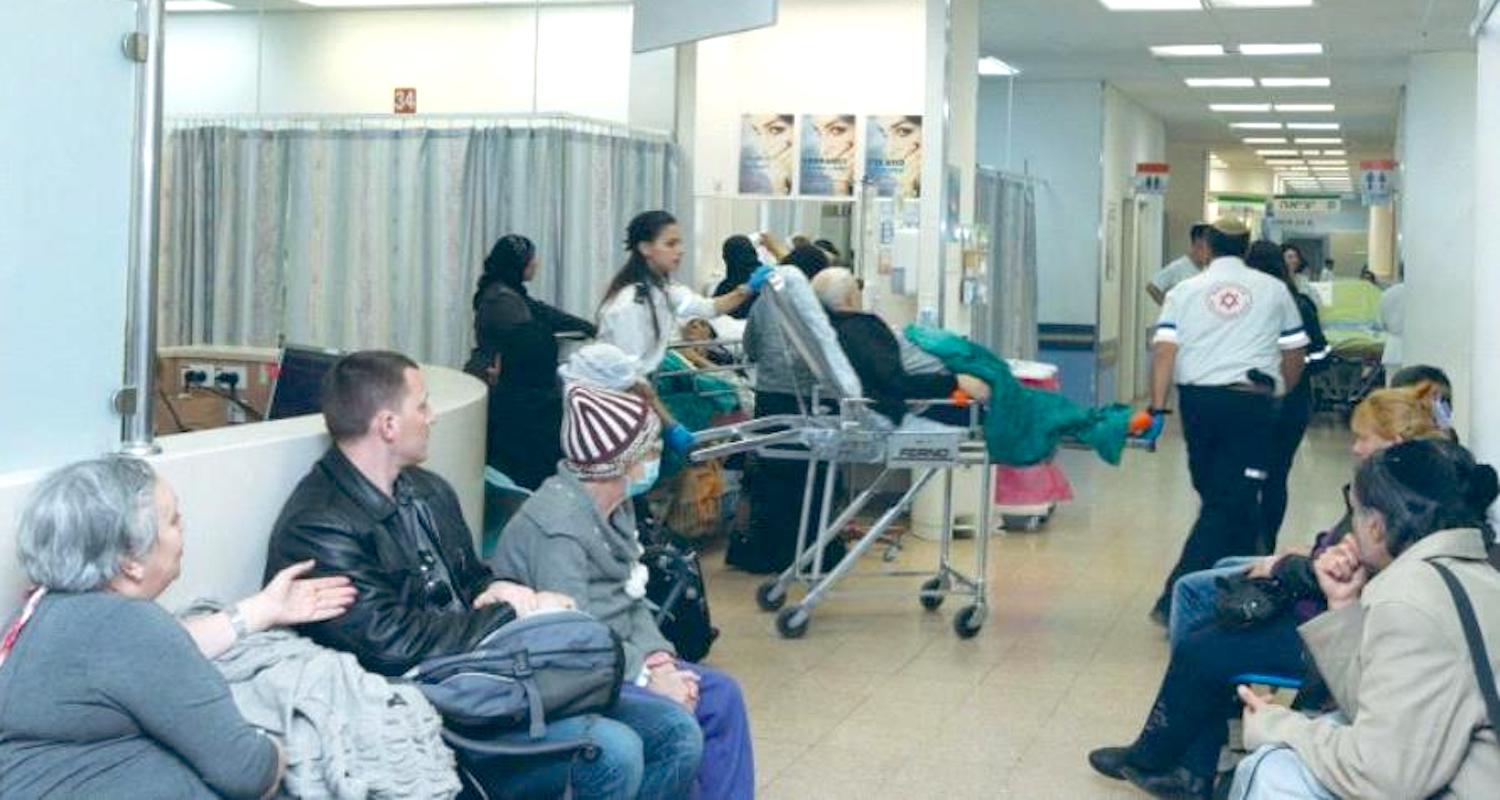Abu Murad had sad eyes as he pulled the coach away from the curb. The students were waving slowly in gestures of friendship and prayer. I watched our purple bus disappear over the rise then tried to collect myself. I wasn’t sure when I would see them again. It was an emotional moment. Only minutes before the doctor had phoned to tell me that the dog that I had strangled was rabid.
My possessions were on my back, a phone was in my pocket, and a bottle of water was in my hand. I needed to move, not mope. The closest hospital with the treatment for rabies was in Beer-sheva.
Just up the road was a squadron of taxis. I stepped that way. One of the drivers leaned out. I asked if he could take me to Beer-sheva. He whistled.
“It’s cheaper to take the bus.”
View to the Rotem neighborhood of Arad. Image from here.
“When will the bus come?”
“I don’t know.”
I asked another taxi-man and got the same answer.
Arad is such a scruffy desert town, I thought.
The doctor on the phone had stressed that the clock was ticking and timing was a matter of life or death. “You don’t need to take a chopper (helicopter) . . . ” he had said in a heavy accent. But you had better fly, was the implication. I couldn’t afford to hang around waiting for a public bus that may or may not appear.
I jumped into the passenger seat.
“Take me to the hospital in Beer-sheva.” The taximan shot me a curious look.
"The hospital." I repeated. "Kelevet. Rabies, you know?” I showed teeth. “And use the meter.”
We blasted away, meter ticking.
Image of "Southern Palestine" from J. P. Newman's book From Dan To Beersheba. See digital version here. Accessed 6/25/2018.
The evening ride across the Negev was quiet and warm. The orange sun squatted between barren hills. The taxi-man was silent, somber even. I rolled down the window and let the wind blow my hair. I reflected on the biblical features of my current journey. I was bitten in Dan. The treatment required to save my life was in Beer-sheva. It was a new way of thinking about the dimensions of this “Land of Promise.” From Dan to Beer Sheba.
We needed some of that promise right now.
The car pulled up to the emergency room door. I paid the fare. “Good luck” the taxi-man said. His concern seemed genuine.
In the hospital I showed the admitting desk the papers I had received from the clinic in Tzfat. I also gave them the cell number of the doctor who had called me on the bus.
The emergency waiting room in the Beer-sheva hospital (Soroka Medical Center). It was a hoppin' place. Image from here.
Several phone conversations later the administrator said, “The treatment will cost 4,000 shekels.” I thought back to the woman in Tzfat when Shadi was with me. She had said she would kill anyone who tried to take that sum. I wished I had her on speed dial.
I pulled out my wallet and produced a card. “I have insurance.”
That went nowhere. “Good. We will give you a receipt. You can get reimbursed when you get home.” There was no room to maneuver.
A credit card swipe later I was escorted to a waiting room in the back.
A nurse saw me first, took my vitals, and then a 30-somethingish woman came in. She was wearing a t-shirt, faded green pants and army boots. Her hair was pulled back in a bun. She did not address me but dropped into a desk to examine a collection of papers. Her fingers hammered something on a laptop computer. She stopped. I inquired if she was a medical doctor. She answered curtly without looking up. “Yes.”
She asked me a few more questions in perfect English. Before it was over we had the Galilean doctor on my cell phone. He confirmed what was needed. He also said something that made her laugh. She gave me a half-smile and left the room.
Image from here. Accessed 6/25/2018.
A few minutes later the nurse returned. She was cradling glass vials of immune globulin, three capped syringes, and an assortment of other small packages. She dumped all of this unceremoniously on the desk. After arresting one run-away vial she announced grandly, “These are all for you.”
I didn't know whether to be pleased or terrified.
Soon the doctor-in-boots returned. She began loading the syringes. “This is going to sting,” she said, “but it will save your life.”
“Sting away." I said.




